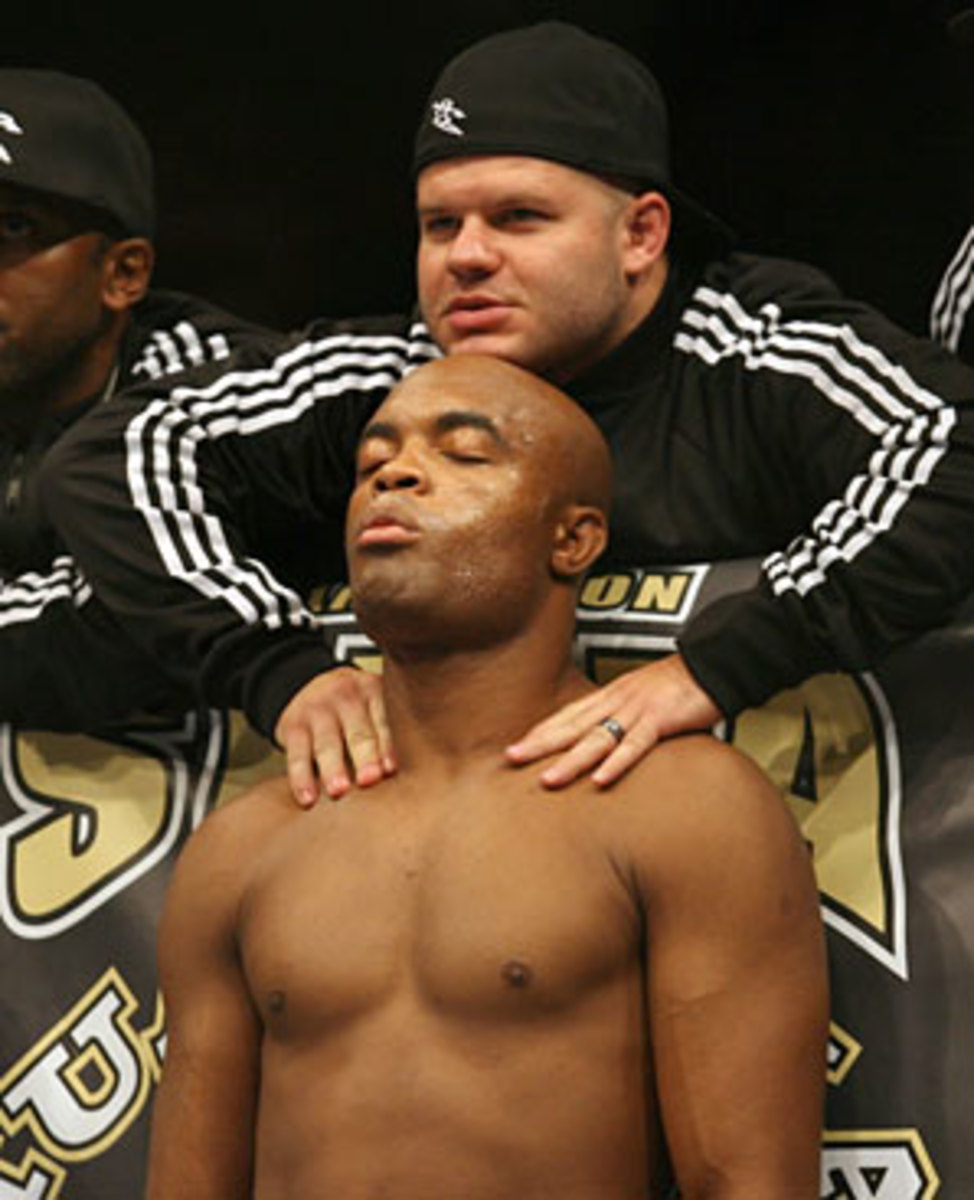Cross-divisional showdowns may become necessary for Penn, Silva
You know there's something strange going on when three UFC champions put their respective titles on the line within a two-week span, and the most pressing questions they face revolve around when they're going to gain or lose weight so they can fight one another.
Such are the perils of success. People become less and less interested in seeing you do the things they already know you're capable of. They want new demonstrations of total dominance. They want the tightrope raised higher and higher, particularly if it means that one of you has to fall.
Georges St. Pierre dealt with this when he defended his UFC welterweight title against Dan Hardy at UFC 111 a couple of weeks ago. Now B.J. Penn and Anderson Silva get their turns at UFC 112 on Saturday. For Penn, the question is when will he be able to declare the UFC's lightweight division officially cleared out, allowing him to head back up to 170 pounds. For Silva, it's even trickier.
In the past the middleweight champ has suggested he might go all the way up to heavyweight, presumably because his forays into the light heavyweight class haven't yielded any stiffer competition than he's faced in his own division of late. This week he also suggested that he might cut to welterweight to take on GSP, who seems less than thrilled about bulking up himself.
If the mountain won't come to Silva, then Silva may have to go to the mountain.
The force that is pulling these three champs together isn't so much natural magnetism as it is a lack of compelling competition. When St. Pierre squared off against Hardy, he spent five rounds beating on an opponent who was a 6-1 underdog heading into the fight. On Saturday Penn is about a 7-1 favorite to beat lightweight challenger Frankie Edgar, while Silva is as high as 8-1 to beat jiu-jitsu phenom Demian Maia, who took the bout on two months notice after an injury forced Vitor Belfort off the card.
With lines like that, it's little wonder that fans are more focused on when the champs might fight each other than on which heavy underdog might be next in line to get squashed. You can only sell people on the chance that something crazy might happen for so long before they stop paying attention. Eventually you become the boy who cried upset. Promises that the next challenger will "shock the world" ring hollow once you've seen how ludicrous a guy like Silva can render those claims. When he feels like it, anyway.
If Silva beats Maia in Abu Dhabi this weekend he'll have successfully defended the title six consecutive times. In case you're wondering, yes, that would be some sort of record in the UFC. As it stands now he's tied with Matt Hughes, who defended the welterweight strap five straight times in a dominant two-year span in the early part of the decade.
Remaining at the top for so long, and in such decisive fashion (say what you want about the entertainment value of Silva's fights with Patrick Cote and Thales Leites, but he was in complete control throughout both bouts) is an almost superhuman accomplishment in the world of MMA, where undefeated records and long title reigns are far less common than boxing.
But the downside of such dominance is that eventually you run out of challengers. New ones can be bought from competitors, they can be groomed and developed over time, or they can be manufactured with pre-fight hype. One takes money, another takes patience, and the third merely takes a good video editor and a couple employees willing to remind us over and over again that anything can happen in a fight.
The UFC has tried all three at one point or another, but it doesn't stop guys like Silva or Penn or GSP from demolishing everyone in front of them until there's nothing left but rematches or cross-divisional superfights.
That's not necessarily a bad thing, but it is the kind of the thing that will force the UFC to make some hard decisions.
If Silva and Penn roll to victory as impressively as St. Pierre did -- and there's no reason to think they won't -- somebody's going to have to get bigger or smaller, or else agree to meet somewhere in the middle.
Otherwise, keeping these longshot bouts interesting is going to become a full-time job in itself, and that poor video editor is overworked as it is.






